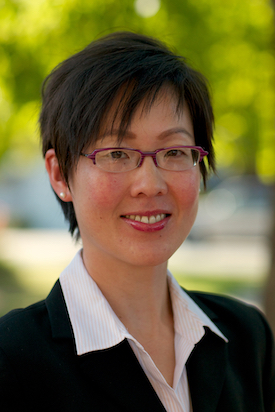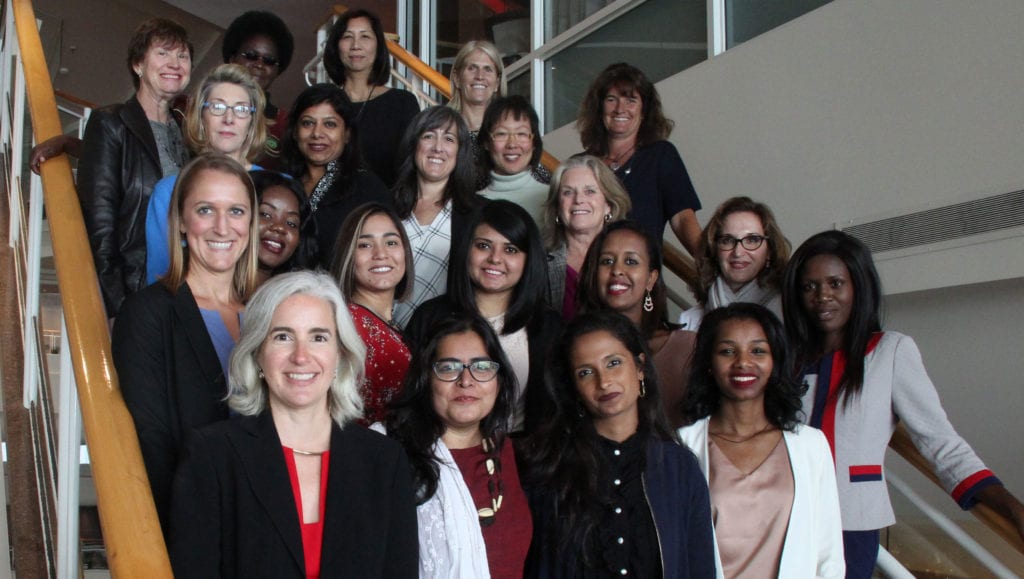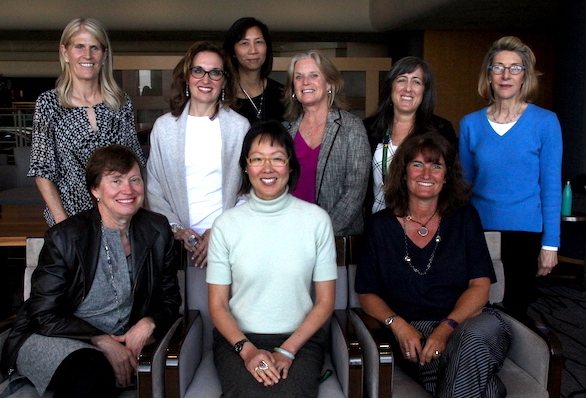By Fong Wang, Rise Up Leadership Council member and Head of Compliance and Risk for Opendoor
Rise Up Leadership Council member Fong Wang shares her experience as part of Rise Up’s delegation at the 2019 Women Deliver Conference.

Fong Wang, Rise Up Leadership Council member
Since becoming a member of Rise Up’s Leadership Council earlier this year, the tireless passion and dedication of the other Leadership Council members, Rise Up’s founder Denise Dunning, and the Rise Up staff have left an indelible impression on me. That’s why when Denise invited Leadership Council members to join the Rise Up delegation at this year’s Women Deliver Conference, I did not have to think twice before accepting. I thought this would be the perfect chance to both gain a global perspective on the current state of gender equity and to mingle with fellow Leadership Council members and Rise Up’s Leaders and Youth Champions. Two birds with one stone, I figured. But as it turned out, what I experienced at Women Deliver 2019 was so much more!
With more than 8,000 attendees coming from 165 countries and representing 3,200 organizations, the sheer scale of the event blew me away! And as I scrolled through the Women Deliver app to figure out which sessions to attend with my fellow Leadership Council members, I was pleasantly surprised to see that Women Deliver 2019 offered more than 610 programs covering a wide gamut of subjects ranging from sexual and reproductive health rights to economic empowerment and financial inclusion. The theme this year was “Power. Progress. Change,” and in keeping with this theme, the conference programming highlighted the power of the individual, structural power, or the power of movements to drive, or to obstruct, the progress of change.
If I was asked to pick my favorite program at Women Deliver 2019, I would have to say the session on “The Power of Now: Taking stock of where we stand and what opportunities and challenges lie ahead” was the most memorable for me. Canadian Prime Minister Justin Trudeau delivered the opening remarks for this session and a panel discussion followed in which dignitaries, activists, and advocates shared their perspectives on the progress and setbacks to achieving the structural changes called for in the Sustainable Development Goals. Listening to the discussion, it was clear that more needs to be done to speed up the pace of change even though the panelists agreed that the needle had moved in the right direction in the last three years. Their discussion imparted in me a deeper awareness of the intersectionality between a top-down approach and a bottom-up response to effectuate structural change.

Fong (middle top right) with the Rise Up delegation at Women Deliver 2019
Another equally memorable session addressed “The Power of Tech: How do we best harness technology for gender equality?” This program was moderated by Melinda Gates, who invested $80 million through the Bill and Melinda Gates Foundation in the last three years to close the gender gap and to help accelerate progress for women and girls around the world. The panelists included business leaders who leverage technology to disseminate sexual and reproductive health information and to facilitate expanded financial inclusion for women and girls. I was touched by the spirit of innovation and perseverance exhibited by the panelists. Their stories are poignant testaments to the expression that “knowledge is power.” And like the panelists, I also share in the belief that with the advent of technology in recent years, we have been presented with an unprecedented opportunity to share knowledge, and thereby power, more equitably. We cannot let this opportunity go unseized.
With this realization, a most basic question then presents itself: How can women and girls become activated to drive scalable structural change once they have been empowered through education? This is where Rise Up’s advocacy and leadership curriculum can play a critical role. During a joint session co-hosted by Rise Up and Girl Up called “When Girls Rise, We All Rise,” Leadership Council members, along with others in attendance, got to take part in training sessions taken from the Girls’ Voices Curriculum, which is a training program jointly developed by Girl Up and Rise Up to support adult advisors and girl leaders to launch girl-centered training programs and to bring girls together to initiate change. Over breakfast, Rise Up and Girl Up youth activists facilitated small-group sessions in which we practiced communicating with non-verbal cues and discussed the importance of body language as a communicative tool. At the end of breakfast, I had a renewed sense of confidence in my ability to communicate across language barriers.

Fong (front center) and fellow Leadership Council members at Women Deliver 2019
Rise Up also organized several events for the Rise Up delegation, including a meet and greet dinner event on the opening night of the conference for Rise Up Leaders, Youth Champions, and Leadership Council members. That evening we played “speed dating” and took turns answering questions about ourselves. This gave me a chance to learn something quirky about several members of the Rise Up delegation. Over dinner, I sat next to youth leaders from Ethiopia who told me in graphic details the conditions in their home country, the challenges they face, and how Rise Up’s support and advocacy training have enabled them to contribute to improved welfare of women and girls back home. All in all the evening was fun and enlightening!
Since coming home to the San Francisco Bay Area, I have had a chance to reflect upon my Women Deliver 2019 experience and I have come to realize that beyond what I have been able to convey in writing, there are many more revelations, connections, and trains of thought that are simply beyond what words can express. I think Women Deliver is an all-encompassing event that anyone focused on gender equity must experience in-person at least once. And I wouldn’t be surprised if after you attend your first Women Deliver Conference, you discover that your takeaways are completely different than my own.
If you are intrigued by what you read here, then I hope to see you at Women Deliver 2022!

